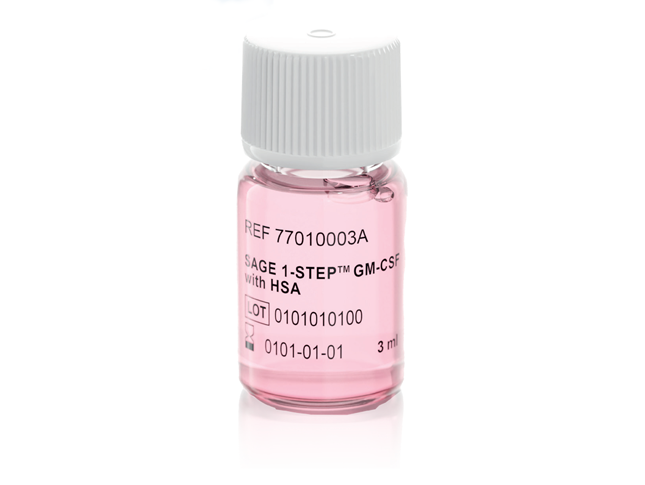Preimplantation genetic (PGT) testing is an important screening tool for patients undergoing fertility treatment. Research on PGT-Complete, CooperSurgical’s latest PGT offering, shows a high rate of accuracy in genetic parentage confirmation of an embryo, which can give patients more confidence in the PGT result.
Unbalanced headlines focus on rare occurrences in IVF
The path to parenthood for those who seek in vitro fertilization (IVF) treatment is an emotional journey with many potential highs and lows. While IVF errors can be devastating for impacted families, reported serious IVF errors are infrequent, yet ignite debate around IVF, its safety, and reliability for patients. This negative spotlight on the IVF field continues to prevail with each occurrence, no matter how infrequent they may be.
A negative impact is also felt by current and potential patients who may benefit greatly from this type of assisted reproductive technology (ART). Patients involved in the IVF process may feel anxiety over the prospect of a mix-up of their biological samples in the lab. This common worry is easy to understand as patients are typically not familiar with the protocols and systems used by fertility laboratories and may feel overwhelmed by these highly publicized IVF mix-up stories.
A major consequence is that, unfortunately, some people may decide not to seek IVF treatment because of such worries and miss out on a highly successful fertility treatment option. While others, looking for reassurance, may decide to move from one clinic to another, which can ultimately lead to more anxiety, confusion, and uncertainty around the IVF process.
“Patients involved in the IVF process may feel anxiety over the prospect of a mix-up of their biological samples in the lab.”
It is time to address the “elephant in the room”
These are questions that patients think about even if they do not mention them, believes Dr. Serena Chen, Director of Reproductive Medicine at the Institute for Reproductive Medicine (IRMS).** “If your patient doesn’t look you in the eye and directly ask you this, it’s in the bubble over their head and for doctors, it’s the elephant in the room…we take every single precaution…but the problem is real. We all know it [IVF mix-ups] happens, and we really cannot ignore it anymore.”
Lessons learned in single-cell genomics and IVF embryo handling
An IVF mix-up is an unfortunate event for patients and their families. As a trusted partner, fertility clinics always want to communicate the highest confidence in results for patient reassurance. The highly specialized ART tools being utilized today in fertility laboratories, such as electronic witnessing and genetic testing, are helping to reduce errors as well as increasing the potential of euploid embryos for transfer. 1, 2
Advancements in preimplantation genetic testing (PGT), a screening tool, allow patients to gain more information about embryos created during the IVF process. There are different types of PGT; PGT-A/SR investigates chromosomal abnormalities/copy numbers, and PGT-M helps identify known single-gene disorders in embryos. These genetic tests have helped many patients ensure that healthy embryos are selected for transfer and helped increase the chances of a successful IVF outcome.
“Advancements in preimplantation genetic testing (PGT), a screening tool, allow patients to gain more information about embryos created during the IVF process.”
Next level PGT-A analysis
The PGTai® 2.0 technology from CooperSurgical took PGT-A analysis to the next level with the creation of its artificial intelligence (AI) algorithm. It was built from embryo data with known outcomes and includes assessment of copy number variations (CNV) and single nucleotide polymorphisms (SNP) in aneuploidy analysis. With the proprietary PGTai, CooperSurgical has eliminated subjectivity, improved ploidy detection, and increased confidence in reporting.
”You could see this continued innovation from us at CooperSurgical in the PGT-A space especially starting in 2018 where we launched our own automated interpretation pipeline for PGT-A,” says Josh Blazek, Senior Director, Genomics Research & Development. ”Adding new technology, new sequencing capacity [and] adjusting our approach to how we do PGT-A over the last four years to the point where we’ve launched three new iterations of our PGT-A product.”
In their newest launch, CooperSurgical introduces a 4-in-1 test to improve the standard of care in PGT. The new PGT-Complete test provides all the benefits of their revolutionary PGT-A and ai, plus origin of aneuploidy, genetic (pronucleus) PN checking and Parental QC (Quality Control).
“With the proprietary PGTai, CooperSurgical has eliminated subjectivity, improved ploidy detection, and increased confidence in reporting.”
A new component to identify genetic relatedness
To get even more information from the embryo biopsy, CooperSurgical developed its latest PGT offering to help confirm the genetic parentage of the embryo. “Our test called PGT-Complete takes us beyond aneuploidy screening [and] beyond our traditional PGT-A to give us new insights into what’s happening in preimplantation genetics,” says Tony Gordon PhD, Vice President of Business Development at CooperSurgical.
With PGT-Complete, “we can look at not just what’s happening in the egg, but in things like the inheritance…and confirm different things that we haven’t been able to confirm before,” says Dr. Gordon.

An algorithm built from maternal and paternal inheritance patterns
The Parental QC aspect of PGT-Complete emerged from the PGTai® 2.0 AI algorithm and the analysis of parental genomic DNA from buccal swabs and DNA from embryo biopsies.
To ensure algorithm robustness, Parental QC was developed using 189 Trios (maternal DNA + paternal DNA + embryo biopsy) from 42 families with expected inheritance patterns. Inheritance verification was made via a PGT-M analysis. The trio selection included consanguineous and non-consanguineous families.
“…Parental QC …emerged from the PGTai® 2.0 AI algorithm and the analysis of parental genomic DNA from buccal swabs and DNA from embryo biopsies.”
The significant accuracy of Parental QC
Parental QC was validated by more than 2800 samples to yield a calculated total accuracy rate of 99.85% (2808/2812). This high accuracy rate demonstrates the technical robustness and reporting confidence that Parental QC provides. ³
Increased confidence for patients and clinics
This extra component of the PGT-A testing can help increase patient confidence that their embryo is their embryo, genetically matched to both parents. “Patients read about mix-ups…they’ve certainly thought about it,” says CooperSurgical Genomics expert, Professor Mark Hughes, MD, PhD, “and so you can decrease their anxiety and give the clinic a last-minute quadruple check.”
This technology gives tremendous benefit to patients and to clinics as well. “It is an ongoing daily confirmation that all is going well in the lab, and it supports and underscores their existing protocols,” says Professor Hughes.
For Dr. Chen, it’s about more transparency for patients. “The more transparency, the more information possible…the technology is super complicated and very interesting, but I do think we can explain it in a way that patients can grasp…so they can make decisions for themselves.”
“This extra component of the PGT-A testing can help increase patient confidence that their embryo is their embryo, genetically matched to both parents.”
In the rare instance that either the embryo doesn’t belong to the parents or gametes were not used properly, we will be able to flag that with PGT-Complete, concludes Mr. Blazek. “Our focus has constantly been on how we can improve quality, both with respect to the results that we’re giving and the confidence that we can give to patients in our PGT results, that’s where Parental QC comes in.”
* Quotes taken from webinar PGT-Complete: A new standard of care to reduce anxiety and increase transfer opportunity
** Dr. Chen is a paid consultant of CooperSurgical
References:
- Rienzi, L., et al., Failure mode and effects analysis of witnessing protocols for ensuring traceability during IVF. Reprod Biomed Online, 2015. 31(4): p. 516-22.
- Paz M., et al., Blastocysts Derived From 0PN Oocytes: Genetic And Clinical Results. JBRA Assisted Reproduction, 2020.
- CooperSurgical Whitepaper: Parental Quality Control (PQC) with PGT-Complete, 2022.










